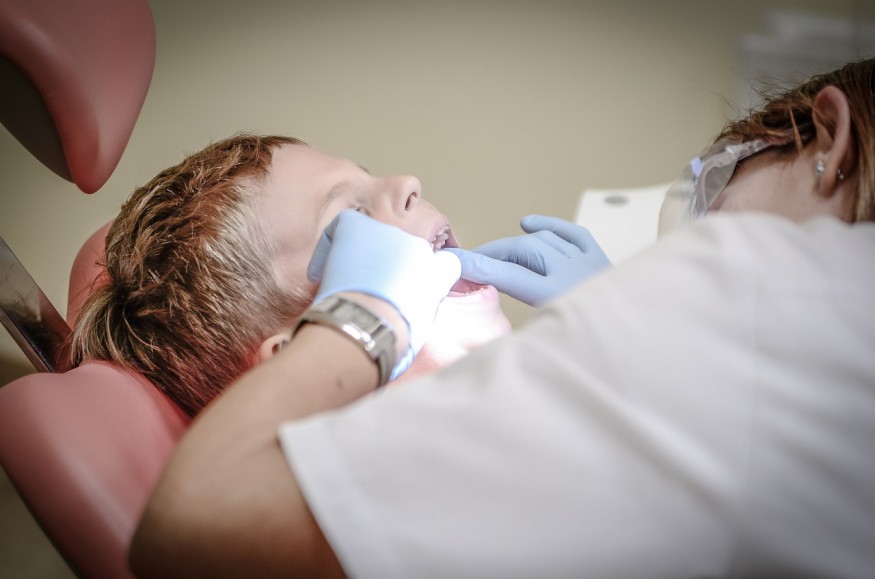A myriad of new dental products has been introduced that have revolutionized dental care in the past several years. One of the most common hygiene and periodontal devices today is the ultrasonic scaler dental instrument.
Most dental professionals are familiar with ultrasonic technology, and the utility of the available products makes it reasonable for every one of them to be equipped with this technology. There are many brands in the market, such as the Luelli teeth whitening kit called Ultrasonic Dental Calculus Plaque Remover.
Traditionally, plaques or tartars are removed manually using a special instrument to gently scrape them off the teeth. But experts have found a better way to do it using the ultrasonic dental instrument in combination with hand instruments when necessary.

How Does An Ultrasonic Scaler Works?
According to Rogers Dental Center, ultrasonic instruments were first used in dentistry in the 1950s. But today, ultrasonic scalers can disrupt and flush away bacteria along with hard deposits that a toothbrush could not reach.
They are so good at removing the buildup of stains, dental plaque, and tartar from the crown and root surface of the teeth, earning them the title of best teeth whitening device today.
Currently, there are two types of ultrasonic scalers. These are the piezoelectric and magnetostrictive varieties that work the same way but have a different type of motion. The magnetostrictive variety moves in an elliptical motion, while the piezoelectric variety works in a linear motion.
Electromagnetic forces cause the ultrasonic scaler instrument to vibrate rapidly at an average of 25,000 to 45,000 vibrations per second, making it easier to break up hard deposits on the tooth without damaging it.
More so, it can rapidly remove stains for a lesser time in the chair for patients and lessen fatigue for the dentist. Since it moves too fast, a process called lavage helps cool it and prevents it from overheating.
Benefits of Ultrasonic Scaling
The rise of ultrasonic scalers to be more effective and completely treat the gum and allow it to heal. The use of ultrasonic scaler has several benefits, as enumerated by Dr. Geoffrey Herzog in his article on the website of Water's Edge Dental:
- Less painful than traditional scaling instruments to promote a trauma-free experience to patients, especially those with sensitive gums.
- More effective at removing tartar buildup compared to a manual scaler instrument.
- Its spray tip allows the dentist to clean the teeth from the debris as they work, and can also be used to administer an antibacterial agent.
- Whitens the teeth by removing surface stains.
- Spend less time in a dentist's chair.
When Not to Use Ultrasonic Scaler
According to the website McLoughlin Dental Care, an ultrasonic scaler dental instrument should not be used when the patient has a pacemaker because it could affect them. Patients with pacemakers must inform their dentists beforehand.
Additionally, the ultrasonic scaler is not advisable to use in people with sensitive teeth or teeth that just newly erupted. Dentists could check whether a patient has sensitive teeth or not.
Also, an ultrasonic dental scaler for home use is not advisable. Dental hygienist Rosie Wright told Medium that ultrasonic scaling should be done by a professional. The lack of correct training will not likely achieve the desired outcome of using the technology.
Disadvantages of Ultrasonic Scaling
While the technology is safe, it is not without risks. According to Radius, some of the reported health risks include platelet damage, cell disruption, interruption to pacemakers, auditory damage, temporary tinnitus, and creating aerosols during the procedure that might contain high numbers of Staphylococcus and Streptococcus species that dentists could inhale.
Can Ultrasonic Scaler Damage Teeth
A 2018 study showed that ultrasonic scaling could cause further damage to the teeth with enamel cracks, resin restorations, and early caries. The researchers of the study recommend an accurate identification of tooth conditions before undergoing the procedure to minimize the damage.
Check out more news and information on Oral Health in Science Times.
© 2026 ScienceTimes.com All rights reserved. Do not reproduce without permission. The window to the world of Science Times.












